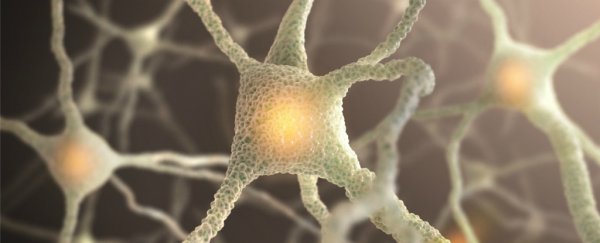New research in rats has shown that a cheap drug used to prevent asthma attacks could also help our brains to fight the symptoms of old age - including memory loss, inflammation, and loss of cognitive performance.
The drug, known as montelukast, was given to rats over a six-week period and appeared to reduce brain inflammation, while at the same time encouraging the growth of new neurons. Scientists are now planning clinical trials in patients with dementia, to see if the drug has the same effect in humans.
Regardless of whether you develop Alzheimer's disease, as you get older, your brain is unfortunately going to stop functioning as well as it does right now. Inflammation builds up, the production of brain cells slows down, and memory and learning abilities become impaired.
Scientists have long searched for a way to delay this ageing process, or reverse it altogether, but most of the research has focussed on finding ways to treat Alzheimer's disease and dementia, rather than general cognitive ageing.
The study was led by Ludwig Aigner, from the Paracelsus Medical University in Austria, and it was inspired after he heard about a link between an inflammatory asthma molecule and more severe cognitive decline.
To test out the involvement between these two pathways, Aigner and his team decided to investigate montelukast, which is an off-patent drug that's currently used to block inflammation in asthma and prevent asthma attacks.
They gave two groups of rats daily doses of montelukast for six weeks - one group of four-month-old rats and one group of 20-month-old rats, which is the human equivalent age of around 65 to 70 years old. These older rats didn't have dementia, but they were showing signs of slowing down with age.
Throughout the treatment, the researchers then tested the two groups of rats on their ability to repeatedly find a submerged platform in a pool of water, and remember where objects in their cage had originally been placed.
The older rats initially struggled with both these tasks, but after taking the drug, their performance was much faster than their peers who had only received a placebo – and it almost matched the younger mice.
Further testing also showed that older rats who had been given montelukast also had more freshly grown neurons in their brains than the placebo rats, and had less obvious inflammation.
"The important thing is that while we saw effects on neurogenesis, we also saw effects on other systems in the brain," Aigner told Ian Sample over at The Guardian. "The drug reduces neural inflammation in the brain. But we also looked at that blood-brain barrier and that is partially restored. We know in aged brains that the blood-brain barrier is leaky and that contributes to neural inflammation."
The next step is to test the same drug in humans, and Aigner's team plans to start with dementia patients. The fact that montelukast is already used to treat asthma means that there are less hurdles to overcome when it comes to using it in humans, but because the drug is off-patent it also makes it challenging for a company to recover the money needed to fund clinical trials.
Let's hope that doesn't hold the researchers back, because with a rapidly ageing population, we definitely need new ways to keep our brains younger for longer.
The research has been published in Nature Communications.
